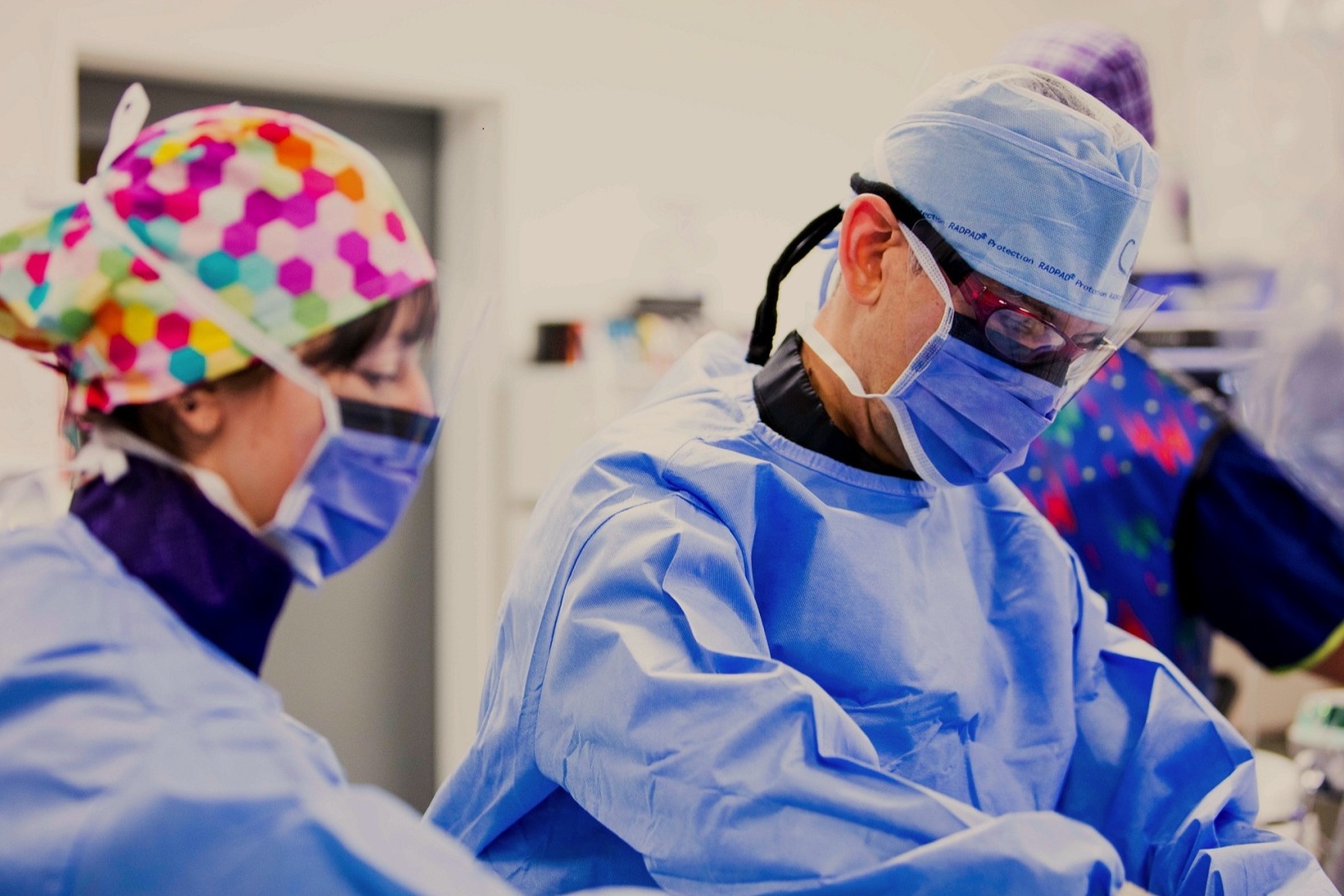If you have blocked coronary arteries, your doctor may recommend a heart bypass operation to create new pathways for those arteries to deliver blood to your heart.
During a bypass operation, a surgeon removes blood vessels from your chest, leg or arm and grafts them on to your blocked coronary arteries. This creates an alternative pathway or a ‘bypass route’ for blood to flow around the blockages and into your heart. The operation usually takes between three and six hours.
As with most things in medicine, there are multiple names for the same procedure. So, if you hear your doctor or another health professional refer to a cabbage, they are probably talking about this operation. The full name for bypass surgery is “coronary artery bypass graft surgery” which is sometimes shortened to CABG and pronounced “cabbage”. The procedure can also be called “cardiac bypass surgery”.
Dr Andris Ellims a cardiologist of Victoria Heart who practices at Epworth Richmond and Epworth Freemasons explains when a CABG is preferred:
Coronary artery bypass surgery is generally preferred to stenting when multiple coronary arteries are blocked due to better survival, less cardiovascular complications (such as a heart attack or stroke) and a lower need for repeat procedures
Does the operation stop your heart?
A surgeon will usually stop your heart for a short time while the blood vessel grafts are attached to your heart. For this reason, you may be connected to a heart/lung machine which will temporarily take over from your own heart and lungs during the surgery.
What happens after surgery?
Every patient is different, but here is a typical journey for somebody having a heart bypass operation:
- Sleep in hospital the night before the procedure
- Have the operation done and wake up in a recovery ward or the intensive care unit
- Stay in the intensive care unit for 1-2 days to be closely monitored by a nurse watching you at all times
- Stay in a ward for 4-7 days until you’re ready to go home
Before you leave hospital, your doctor will make appointments to see you throughout the rest of your recovery, which usually takes 4-6 weeks. However, your long term well-being will also usually depend on your commitment to healthy lifestyle changes such as quitting smoking if it’s a problem for you or eating a balanced diet.
Epworth run rehabilitation programs that can coach you on everything from exercise, diet and reducing stress after a heart bypass operation through to when you can safely drive a car and have sex again.
Where to get help
If your GP or another doctor thinks you need to see a cardiologist or cardiothoracic surgeon ask for a referral to see one at Epworth. You can use our ‘find a doctor’ directory to locate a doctor, or you can contact us for cardiology here.
01 September 2019

